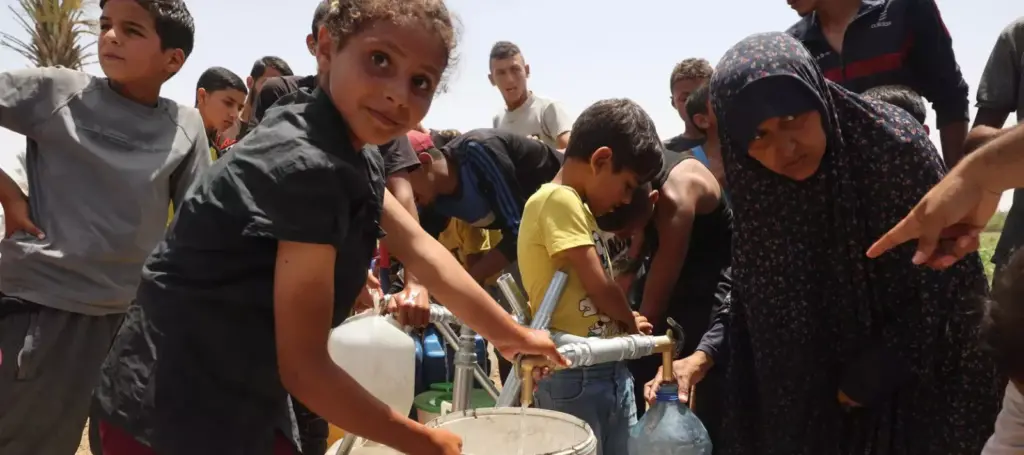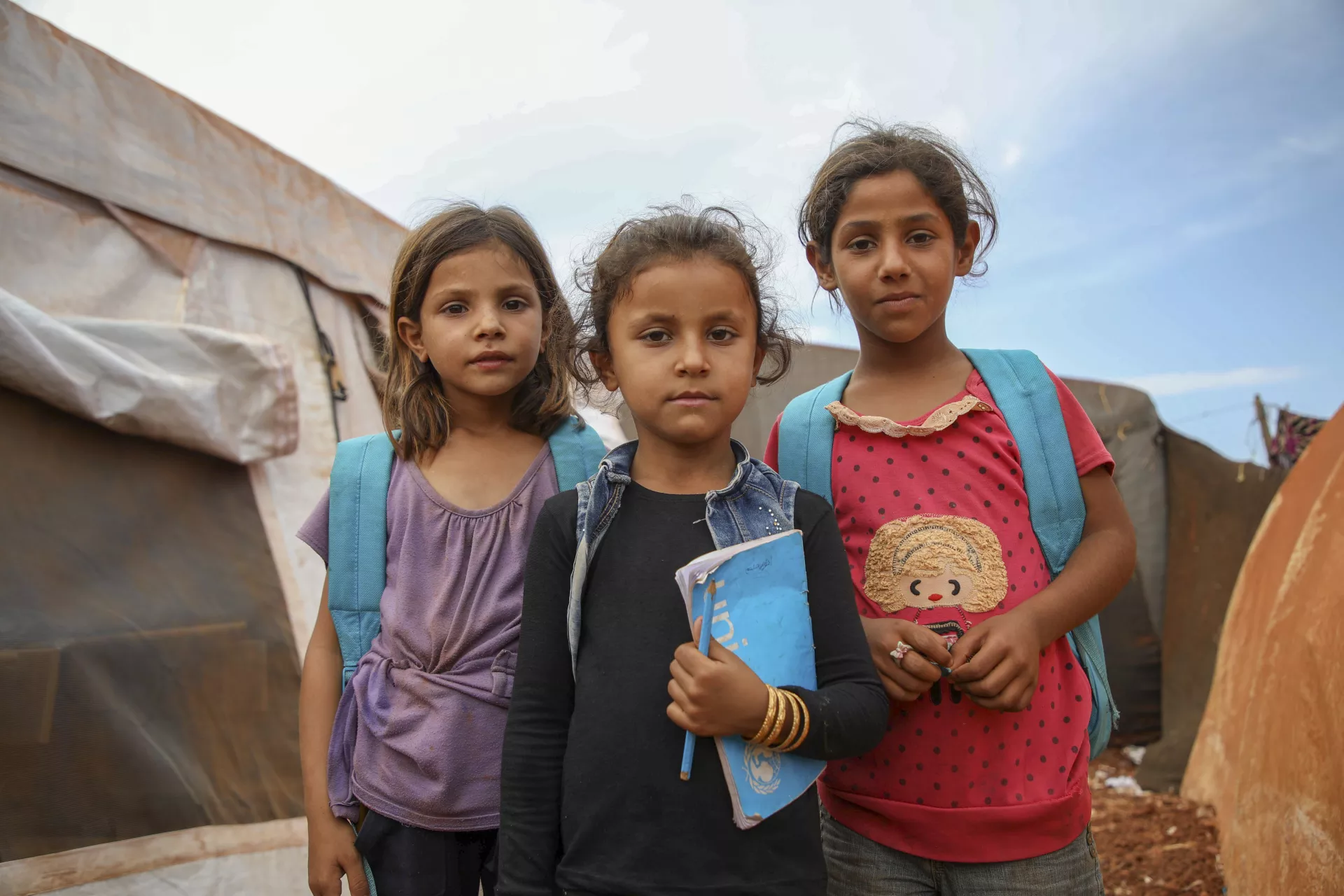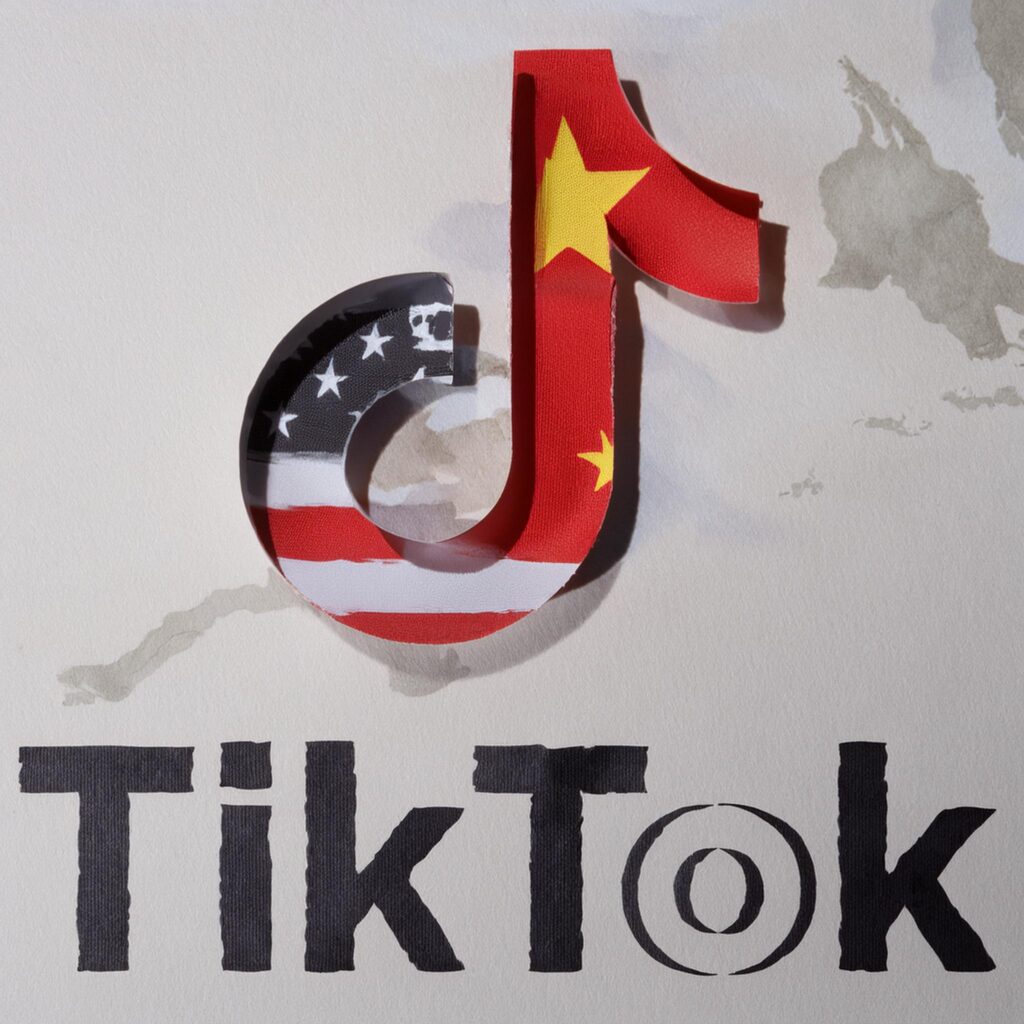A Right to Learn: Refugee Children’s Quest for Education
| By Breanna Conner |
Education as a Human Right
Supported by SDG 4: Quality Education and SDG 10: Reduced Inequalities, the right to education is an international issue of paramount importance. Access to education provides all human beings the opportunity to pursue a higher quality of life, improve health, and promote gender equality. Education is the key to breaking the cycle of poverty and restoring stability to displaced communities. This is why in the midst of a post-pandemic society and ongoing wars, the topic of refugee children’s education necessitates immediate attention and actionable solutions.
Nations and NGOs Take Actions in Crises
The United Nations International Children’s Emergency Fund (UNICEF) is the leading actor in ensuring all displaced and refugee children continue their education despite the internal struggles of their home country. The Internal Displacement Monitoring Centre (IDMC), complements the work of UNICEF by raising awareness about the educational needs of forcibly and internally displaced children. Displacement reasons can vary, ranging from war and political collapse to the internal lack of stability caused by diseases such as COVID-19. With the assistance of SDG 10, the education of displaced children better equips them with the knowledge of their personal rights, and prepares them to act and advocate for policies that will help prevent similar situations in the future.
The majority of displaced children migrate to neighboring countries in search of a more stable life. As of 2013, Iran, Turkiye, Pakistan, Uganda, Germany, and Colombia are the leading host countries with 780,000 to 1.9 million refugee children. Even so, the majority of displaced children do not attend school due to discrimination and limited resources.
Helping Schools to Help Refugee Children
To better meet the diverse educational needs of refugee children, school environments need to be inclusive and understanding. A child’s access to educational information mustn’t be hindered by their race, ethnicity, religion, or gender. It is essential that the schools refugees attend embody “Empathy tempered with kindness, void of discrimination” (Robinson, 2023, p.66). This is crucial since it is difficult for children to focus on studies in a state of distress, and is even more so for refugee children who must adapt to the “complexity of terminology, vocabulary, and the structure attributable to disciplines” (Robinson, 2023, p.66). Secure learning environments enable refugee children to learn at rates closer to other children their age internationally. When students fall behind in their studies, it limits their opportunities for lucrative and fulfilling careers, which may drive them to seek unconventional income sources. Refugees, in particular, face even greater restrictions and scrutiny if they feel compelled by extreme circumstances to turn to illegal means to survive.
Reflective learning is one suggested method of education for refugee children. This method of learning allows refugee children to make choices about their future, which may or may not be in their home countries (Robinson, 2023, p.69). Continuing, the author mentions that this method is also inclusive of each child’s background, and emotional and mental processing state, and applies practical skills that can be used in the future. The reality of the situation is that outside of the safe educational environment, prejudicial and discriminatory practices persist against refugees. Refugee educational performance is not usually recognized in national testing scores, and employment is often limited. In an education process that caters to their needs, refugee children can become recognized as valued members of society.
Case Study: Social Justice Leadership Program Aids Syrian Children in Turkiye
Turkiye uses the Social Justice Leadership (SJL) system to re-engage Syrian refugee children to promote school attendance. Many Syrians in Turkey face harsh discrimination, as well as language and cultural barriers. This has led to conflict between Turkish citizens and Syrian refugees. One method the SJL program employs to address potential intercultural conflict is to encourage co-ed learning spaces that reduce the gender discrimination gap, especially for Syrian refugees (Caliskan & Buyukgoze, 2023, p.220).
The SJL program also acknowledges that refugees have experienced traumatic hardships born from displacement, witnessing violence firsthand, near-death experiences, starvation, loss, and more – hardships that may have marred them emotionally. Consequently, it is often difficult for refugee children to open up in schools, overcome language and culture barriers, and cope with the hardships that brought them there (Caliskan & Buyukgoze, 2023, p.221). However, knowledge gleaned from their first-hand experiences can help create more effective ways to prevent future conflict and aid others in need. Thus, the curriculum revolves around materials that build confidence and social justice awareness.

Comprehensive Approaches to Fostering Refugee Education
Wolsey and Karkouti recommend administrators follow five steps to better engage with refugee students. “The first is to start at the door”, which means to understand how the new beginning is for the parents and children (Wolsey & Karkouti, 2023, p.249). Administrators should genuinely listen to the concerns of the family as they are flooded with new information, a new environment, and often a new language. The second step is to include many visual aids and encourage conversation to better introduce new instructions and vocabulary (Wolsey & Karkouti, 2023, p.251). Thirdly, to carefully choose which words are used, when, and why. Learning on top of trauma can cause confusion and misinterpretation. This is why definition, usage, and nuance must be carefully taught. The fourth and fifth steps encourage creating an environment of inclusivity and advocacy (Wolsey & Karkouti, 2023, p.251). If refugee children know they are supported, then they can be more engaged in their studies, raise their voices on issues, and break cultural barriers.
Plans and Actions Need Extensive Resources
The World Bank encourages more training of teachers to raise school capacity and transform humanitarian schools into government schools. This would ensure more funding, better equipment, and more in-depth training for teachers. Some countries may need to outsource teachers to fit the demand. The integration of Syrian refugees in Turkish schools is a real-world example of how such a program can be successfully implemented. Refugees moved from temporary schools, into language programs, and eventually into government-supported schools.
Investing Now For a More Hopeful Future
Today’s refugee children will shape tomorrow’s world. To cultivate a more inclusive and thriving society during turbulent times, the voices of refugee children must be heard and their needs met. Reflective Learning and the SJL teaching methods are today’s most applied forms of refugee education. As most refugee children are not yet fully integrated into their host countries’ education systems, advocating for their future and societal participation is crucial. At the same time, with increasing numbers of migrants and refugees, countries must respond with capacity growth and adapt to higher demands. Investing in refugee children’s education today paves the way for a brighter future for all children.
Photo Credits: UNICEF
Caliskan, O., Buyukgoze, H. (2023). Education of Refugee Students: Social Justice Leadership and Ecology of Education. In: Wolsey, T.D., Karkouti, I.M. (eds) Teaching Refugees and Displaced Students. Springer Texts in Education. Springer, Cham.
Kattan, R. B., & Oviedo, M. E. (2023, June 20). Rising to the Challenge: Protecting Refugee Children’s education amid fragility, conflict and violence. World Bank Blogs. https://blogs.worldbank.org/en/education/rising-challenge-protecting-refugee-childrens-education-amid-fragility-conflict-and
Robinson, Q.L. (2023). Engaging Refugee Students in an Inclusive School Environment that Promotes Learning. In: Wolsey, T.D., Karkouti, I.M. (eds) Teaching Refugees and Displaced Students. Springer Texts in Education. Springer, Cham.
Wolsey, T.D., Karkouti, I.M. (2023). School Leadership Makes Hope Possible: Five Things School Administrators Can Do Right Now. In: Wolsey, T.D., Karkouti, I.M. (eds) Teaching Refugees and Displaced Students. Springer Texts in Education. Springer, Cham.
 Previous post
E-Commerce Booms in Southeast Asia
Previous post
E-Commerce Booms in Southeast Asia


